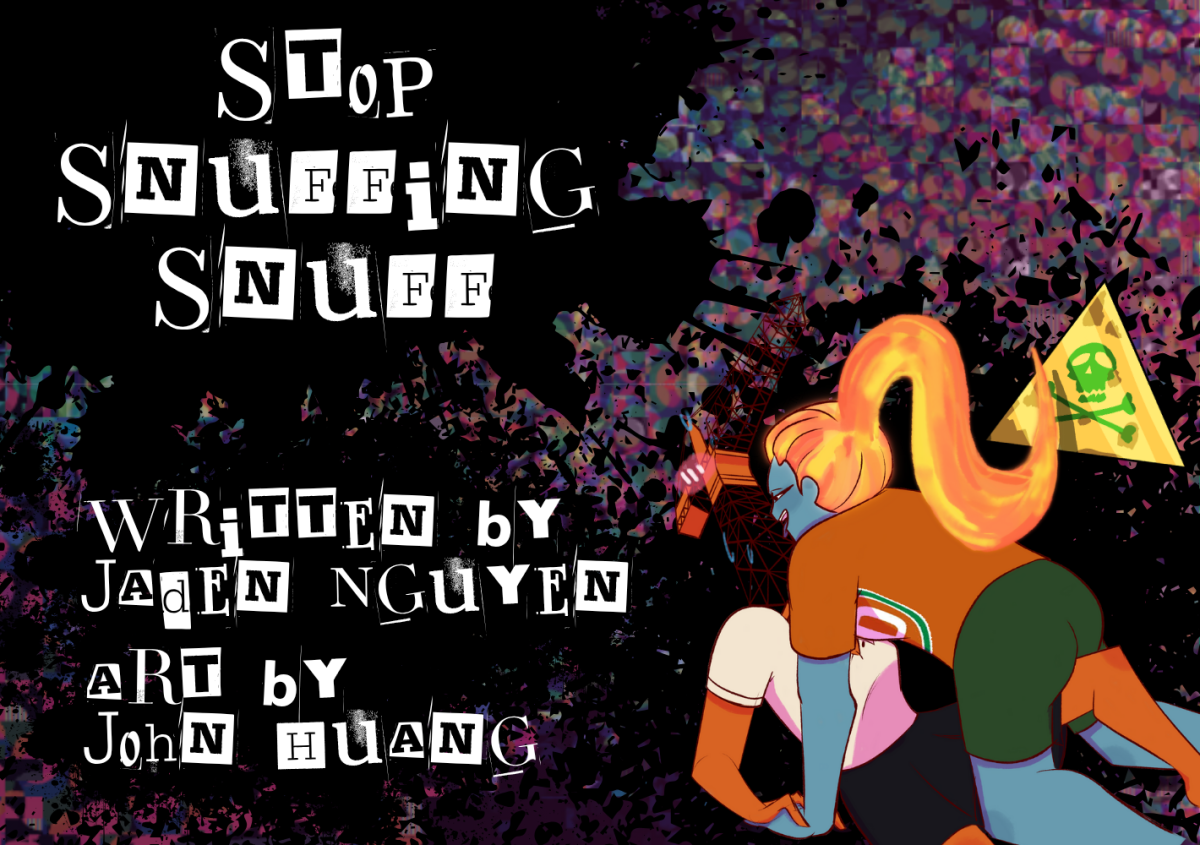
John Huang
LONER_DOG://Snuff Puppy Carnage Society is described on the game page as, “the sensation of stumbling your way through your local queer scene when you can’t say “no” to people.” Curiously, I click to play. Immediately, Aubrey, frotting a gun, shoots herself in the dick. Everyone is in a panic, scrambling to get police, first-aid, something to patch her up. Oh, now Maya is licking her own piss off the grass. Argo and Vanessa are cutting each other up. They’re having sex next to a corpse? Wait, this game is toxic yuri?
Erotic games like these are being purged off the internet. Collective Shout, a group that claims to prevent the objectification of women, campaigned against Itch.io and Steam to remove payment processors for objectionable games. The group insists that games that feature “dark” topics (such as rape, incest, abuse, etc.) and NSFW games glorify abusing women and male-led violence. Following pressure from their payment processors (Mastercard, Visa, etc.), Itch.io removed all NSFW/dark games from their website and updated their Terms of Service to ban games that feature dark topics.
Preventing the objectification of women seems like a righteous cause at first glance. However, their policy seems to censor many depictions of dark media and LGBTQIA+ themes. For instance, Trans News Network stated that many indie game developers announced that their games that include queer/SFW themes have been removed as a result of the NSFW ban. Additionally, renowned games like Detroit Become Human, a game that has clear anti-abuse messages, have been targeted by Collective Shout. When conservative groups like Collective Shout gain a “win” from banning one piece of media, they simply seek out other media that aligns with their agenda. These insatiable conservatives continue to push for more and more censorship.
You might be thinking to yourself, “keeping games that include darker themes is okay if the topics are discussed with grave concern for real life.” If you have pondered this, then you have a good idea of how to discern fiction from reality. Before you jump the gun about proshipping, yes, fiction can affect how you feel. You can cry after your favorite character dies, or be scared of sharks after watching Jaws. However, what Collective Shout means by “fiction affects reality” is that viewing violence in media will influence you to commit the same violence in real life. This is flat out propaganda, with no major scientific support. By contrast, Aronson et al. state in the ninth global edition of Pearson’s “Social Psychology” that “the effects of media pale in comparison to the biological, social, economic, and psychological factors that are far more powerful predictors of aggressive behavior.” Research shows how violent behaviors stem more from psychological and environmental factors, rather than media consumption.
Even though darker themes in fiction are inherently controversial, they provide a lens into the complex emotional relationships many are afraid of discussing. Dark media is, more often than not, written by people that have experienced said “dark” topics. When a heinous, morally questionable sexual fantasy is in a dark romance book, the sex itself isn’t there to make you lose your shit. Rather, the story exists for the writer to cope with the abuse they have faced, and to create a safe environment for them to convey their trauma. Still, coping with your trauma means nothing to Collective Shout when the anti-porn group ignores actual victims and continues to censor these topics in games. This is the same group that defended ‘Cuties,’ an infamous film that cast real life young girls to dance sexually. Melinda Tankard Reist, the founder of Collective Shout, stated, “Yes, the young actors matter. Poor filming choices and the ensuing backlash has, in a whirlwind of accusations, collapsed what was intended as a work of protest into classification as a “porn” production. But do these questionable filming choices make Cuties a film that “promotes paedophilia”? I am not persuaded.”
I’ve also enjoyed my fair share of ‘immoral freak’ games, as it comes with being a toxic yuri fan. One of my favorite visual novels is Slow Damage by NITRO CHiRAL, a yaoi game where the city is overrun with crime, and the main character wants to paint the darkest grotesque desires of his muses. Slow Damage grapples with the dangerous coping mechanisms people can use after experiencing an extremely traumatic childhood event. For example, cutting up your partner like they’re a canvas, mutually beating up your partner, and craving unhealthy sex and violence. (For obvious reasons, remember to check the game pages for proper content warnings.) Not only does the game symbolize how the law can be corrupt, but it also shows how easily mentally ill people can stay in the cycle of not improving themselves.
Another one of my personal favorite games, the aforementioned LONER_DOG://Snuff Puppy Carnage Society by Snek RK, is a toxic yuri game that has beautifully crafted and connected short stories of mentally ill trans women navigating life in a nonconformative way. This game is visually intriguing, with overlapping text boxes containing text messages or dialogue with photobashed and dithered neon backgrounds, in a monospaced font that pairs well with the grotesque narrative. Through “gross” kinks, irredeemable characters, and puppygirl/owner relationships, you get a feel for why every character acts the way they do and how their unhealthy habits affect the way they interact with other people. The gamepage’s comments are full of people resonating with the game, feeling seen by its heartfelt representation of mental illness.
It is okay to be uncomfortable with dark topics in fictional media. I’d never expect you to play a game where someone shoots their dick off! However, with the current censorship that is expanding in today’s society, it is important to keep an open mind to darker topics in fiction. “Good” censorship doesn’t exist, but the marginalized communities that are hurt by conservative censorship are real people, and these games matter to them.